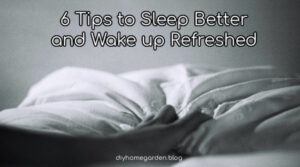If your physical health or mental health is suffering, then sleep deprivation may be the reason. Sleep is both restorative and reparative, a night of deep quality sleep is essential to our overall wellbeing and health.
However, most people find it hard to get the night rest they deserve daily due to over-exhaustion, lack of quality mattress, social obligations, and others.
Regular sleep deprivation takes a heavy toll on your body and mind. It’s linked with grave health issues like heart attack, high blood pressure, obesity, type 2 diabetes, and cardiovascular diseases.
5 Hacks for Avoiding Sleep Deprivation
If you want to get quality sleep, prevent sleep deprivation, and take charge of your mental and physical health. Here’s a list of 5 tips that can help you.
1 – Nap Responsibly
If you’re feeling tired or you didn’t get enough sleep during the night, a quick nap might be what you need. According to research, a quick power nap can provide you with a stronger boost than a cup of caffeine.
However, longer rest during the day can interfere with your nighttime sleep. This means you might not feel sleepy during the night. If you have to sleep during the day, limit yourself to up to 20 to 30 minutes, and avoid sleeping so late in the day.
However, if you’re working at night, you might need to sleep late in the day before work to help you pay your sleep debt.
2 – Stick to a sleep schedule
Studies say the average person sleeps for less than 6 hours per night, which shouldn’t be the case. Sleep experts recommend at least seven to eight hours of sleep.
The best way to buck this trend is to go to bed and get up at the same time daily. This way you can synchronize your sleep pattern and time with your internal clock.
Also, try limiting the difference in your sleep schedule on weeknight and weekends. By being consistent, you’re boosting your body’s sleep-wake pattern.
If you can’t fall asleep within the first 20 minutes, leave the room and do something relaxing you can do, whether reading a book or listening to soothing music.
Although eight hours is the recommended sleeping hours, you can adjust down or up until you find the right amount of sleep that allows you to wake up feeling relaxed.
3 – Create a restful environment
Design a room that’s ideal for sleeping. This usually means a dark, quiet, and cool room. Bright light makes it hard to sleep. Dim your bedroom light to stimulate the production of melatonin, a hormone responsible for inducing sleep.
Declutter your bed to create enough space that makes you feel relaxed just before bedtime. Also, do calming activities before going to bed like meditation or taking a bath. They might promote deep sleep.
4 – Turn off electronic devices
Do you turn to your phone to help you wind down when in bed? Well, this might be doing more harm to you than good.
Electronic devices, such as computers, tablets, phones, and television emit short-wave blue light that inhibits the release of melatonin.
Additionally, the digital content you’re viewing acts as a stimulant. This makes it physically difficult for you to fall asleep. It’s wise you turn off electronic devices 30 minutes before going to bed.
5 – Buy a new pillow and mattress
Comfort is the secret of a good night’s sleep. But you won’t achieve comfort without the right sleeping accessories. I’m talking about a quality mattress and pillow.
If your pillow has reached its average lifespan, usually 1 to 2 years, it’s time to let go of it. After exceeding its lifespan, a pillow loses its shape and becomes lumpy. It also won’t support your head and neck, and this can seriously affect your sleep.
Plus, they tend to harbor dust mites with extended use. So, it’s a good idea to treat yourself with another one if you want to avoid allergies.
The same applies to your mattress. If your mattress is over seven or eight years old, consider getting another one.
 The Bottom Line on Avoiding Sleep Deprivation
The Bottom Line on Avoiding Sleep Deprivation
A good sleep routine, sleep hygiene, and quality sleeping accessories will help you get the most out of sleep, and prevent sleep deprivation. Apply these tips to your sleep routine and see your sleep quality improve significantly.


